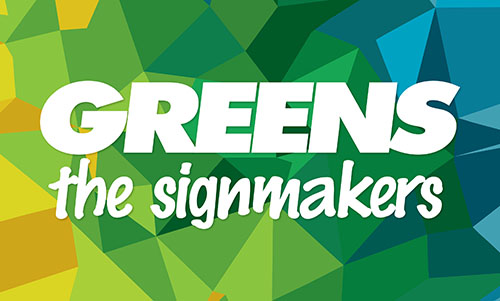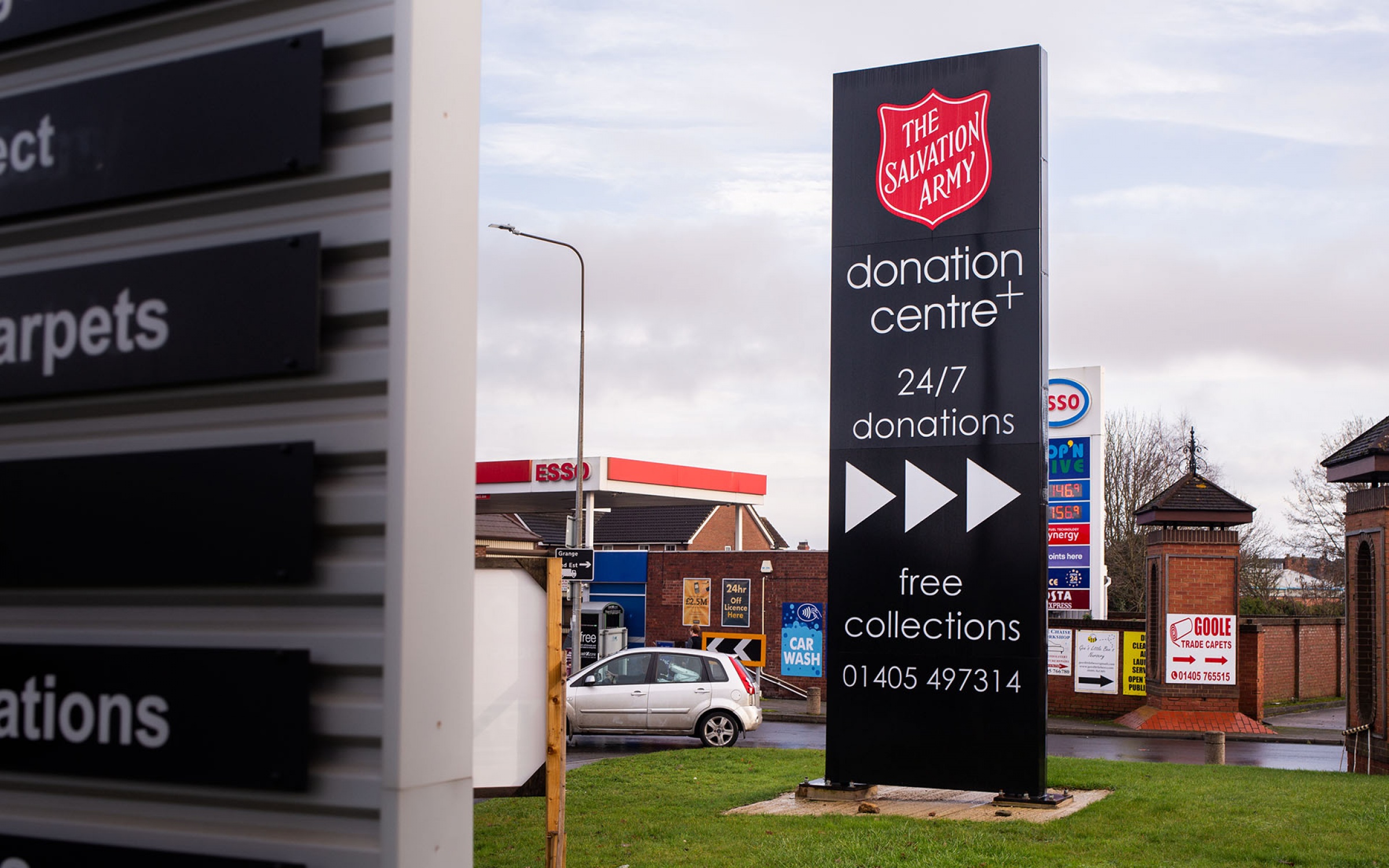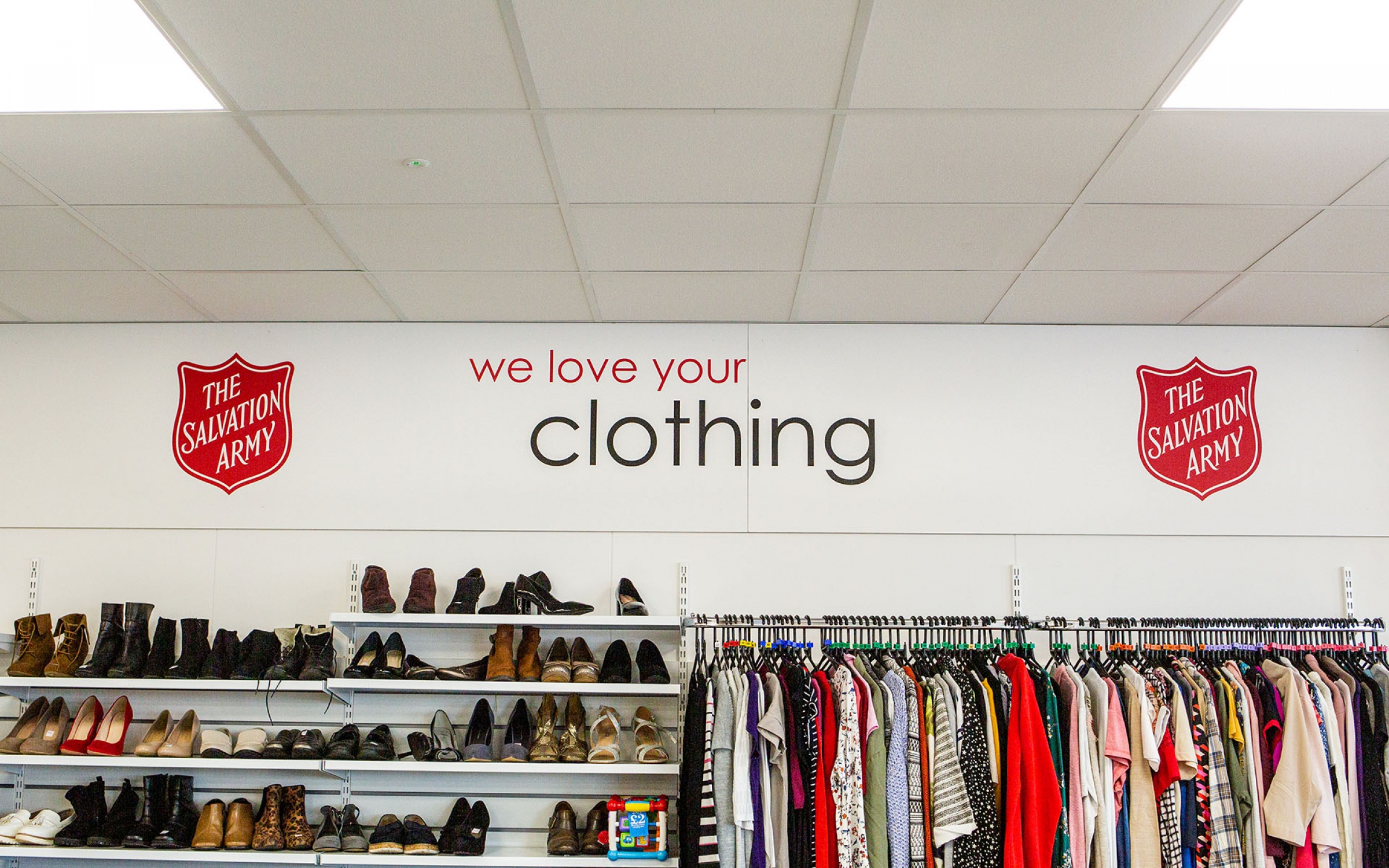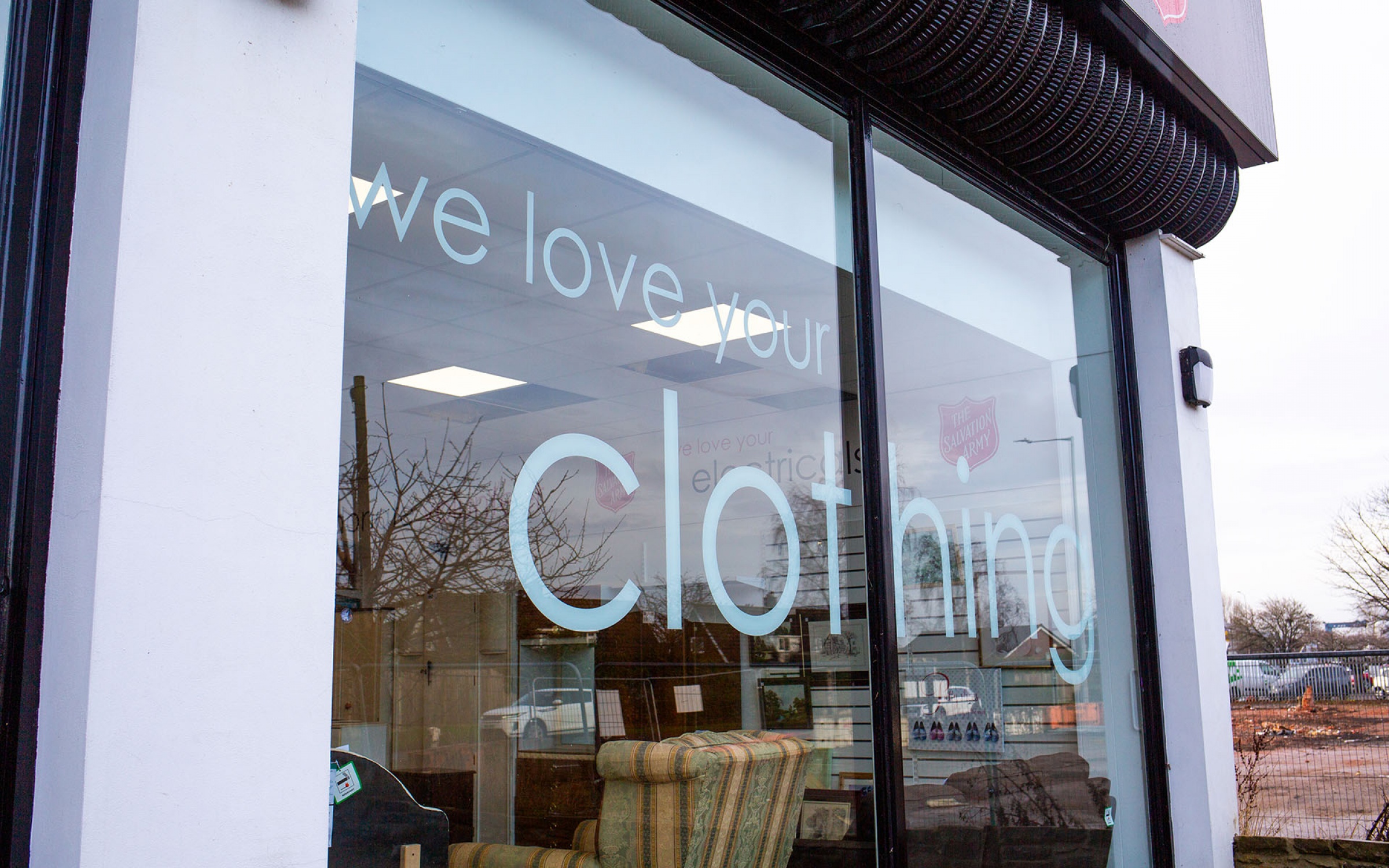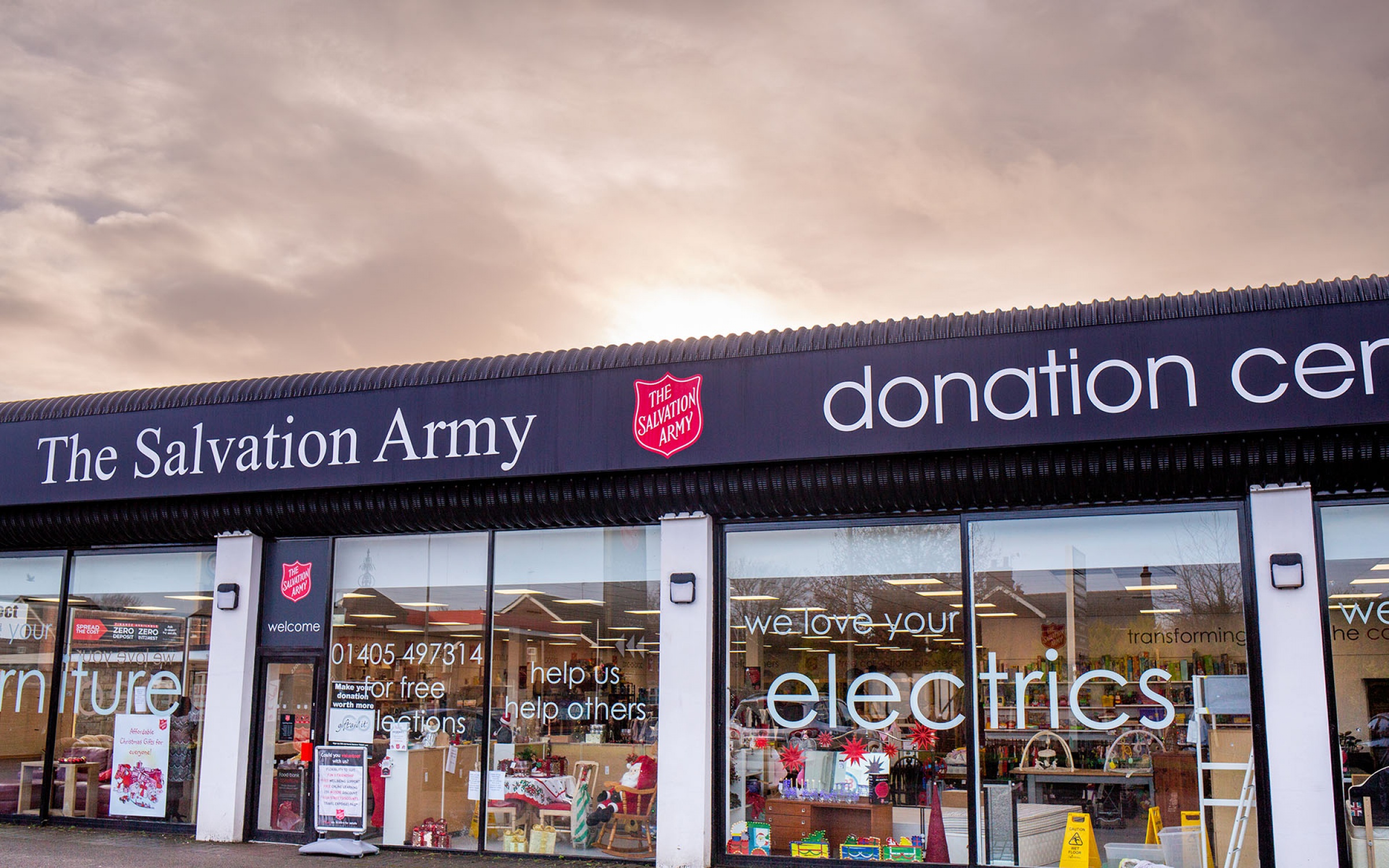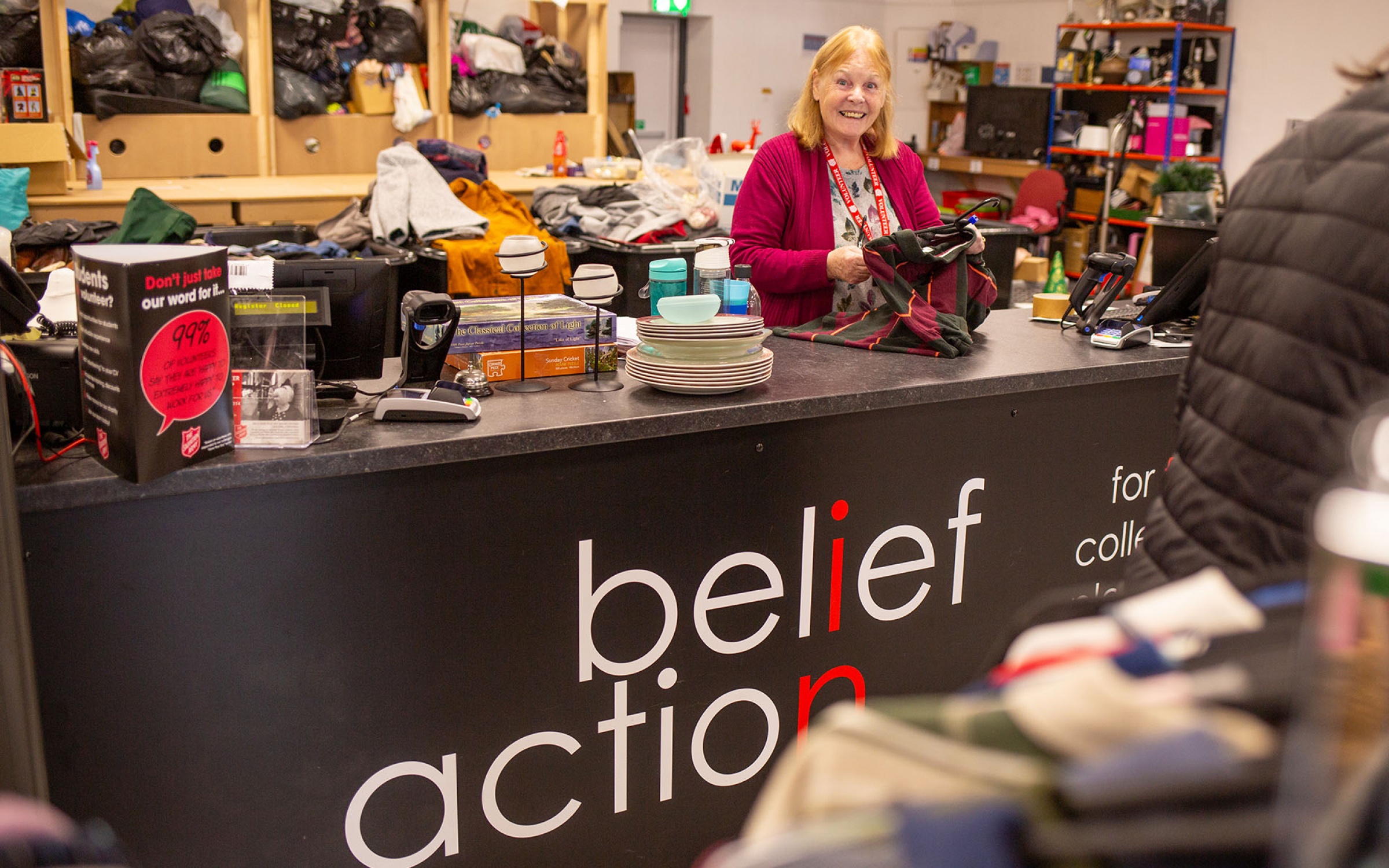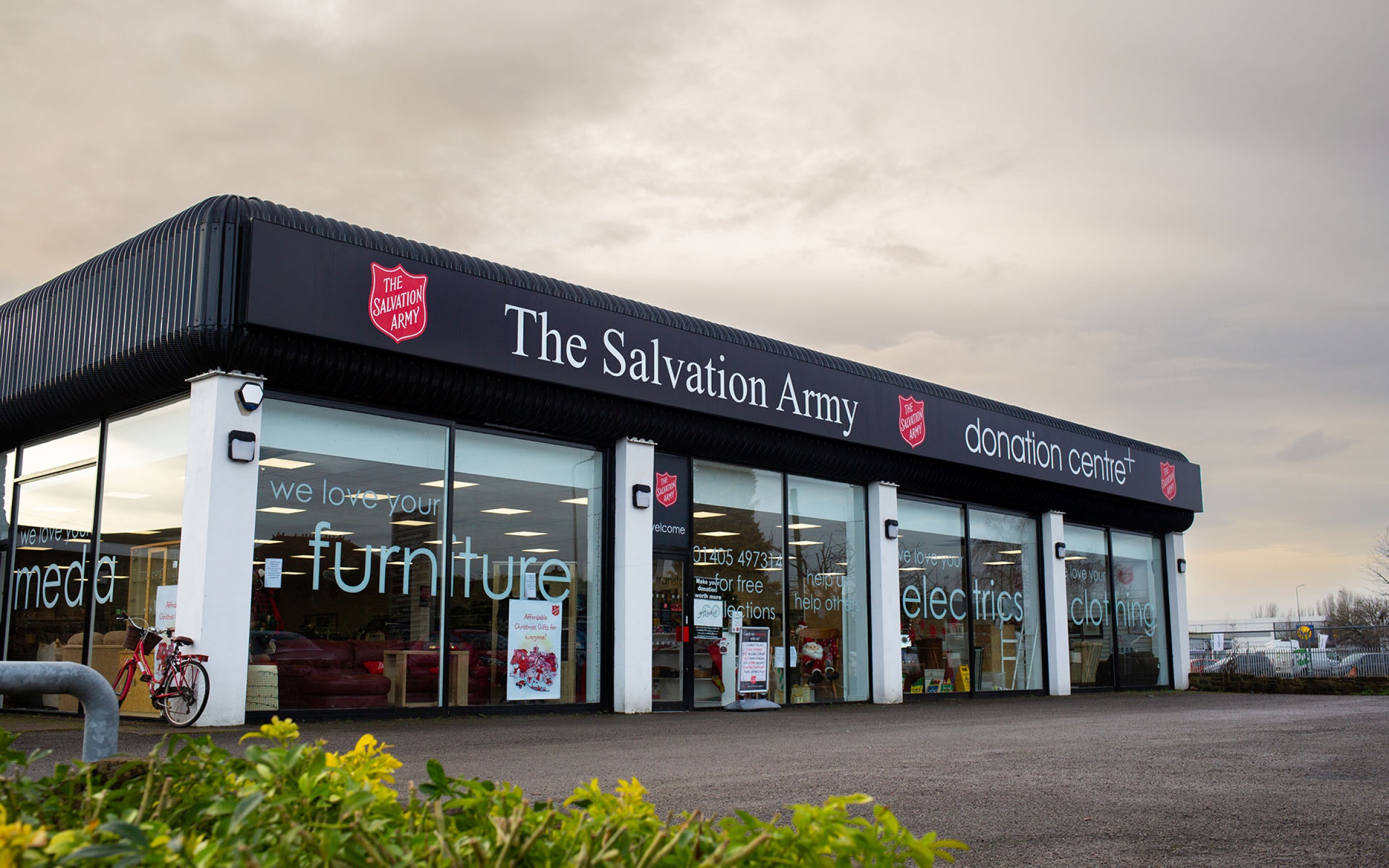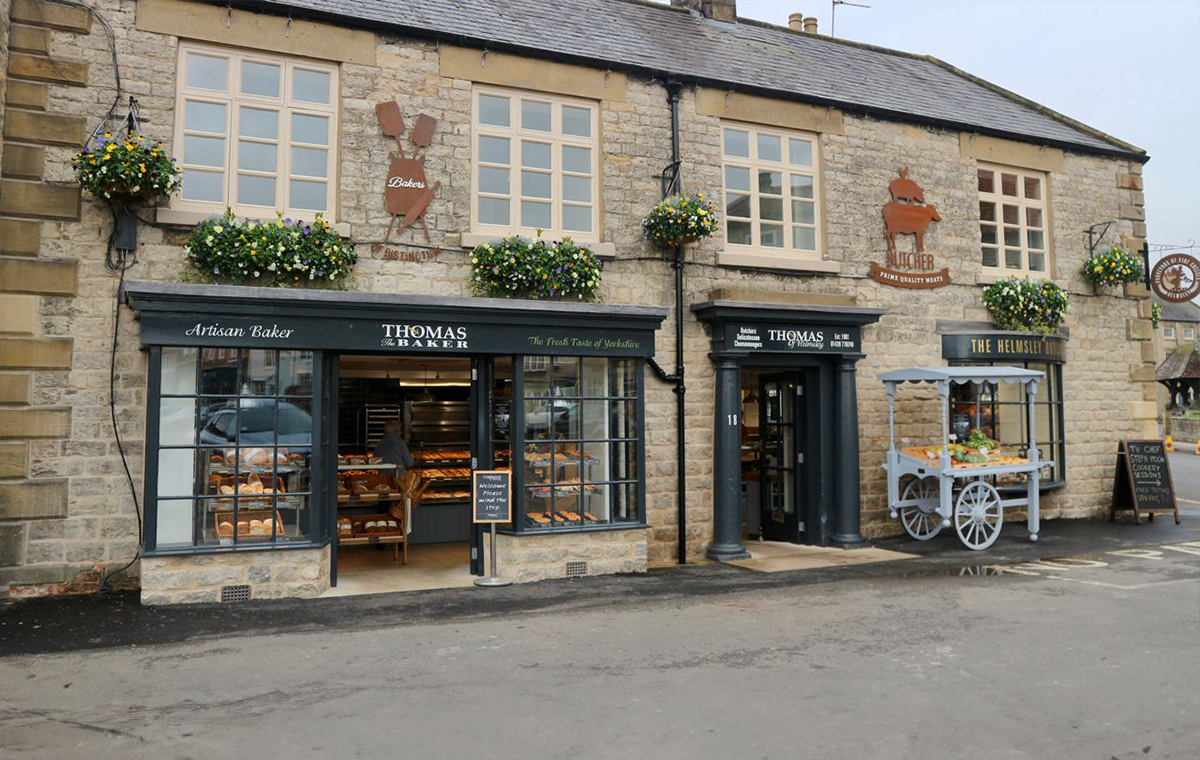Next project
The Salvation Army
After years of working with The Salvation Army, we collaborated with the charity to create their most sustainable site yet at their new branch in Goole, East Yorkshire.
This has been a fantastic addition to our sustainability work.
Making Signage More Sustainable
Improving the sustainability of The Salvation Army's signage required considerable research and development to achieve the perfect balance of aesthetic, durability and environmental impact.
Award-winning Signage
As one of our most sustainable projects, we nominated this for the Sustainability in Signage Award at the Sign and Wrap Awards 2024 and were thrilled to be shortlisted.
What action did we take to manage the environmental impact of this project?
1. Used cardboard for internal perimeter signage:
Previously produced with non-recyclable plastic, we chose white-faced printable cardboard over other recyclable materials as it was a recognisably recyclable material - considering the sign's lifecycle. This option also provided the perfect backdrop for their branding which we printed using water-based ink to maintain recyclability.
2. Installed a solar-powered totem:
The obvious bonus here is using renewable energy to light the totem. More importantly though, by being self-sufficient, digging up the car park and installing armoured cable for a power supply wasn't required. This greatly decreases carbon emissions compared to other solutions. With a steel frame and aluminium cladding, this totem is also easily recyclable whether at the end of its life or when simply updating panels.
3. Manufactured all signage in our solar-powered factory:
We can manufacture all our signage solutions using renewable energy because of our solar panels. This greatly decreases the environmental impact of producing signage, especially considering the low energy efficiency of otherwise sustainable processes such as printing with water-based ink.
4. Attended site visits in company electric vehicles:
Our company's electric vehicles have travelled over 100,000 miles collectively, almost half of this powered by the factory's solar panels. We are also working with suppliers to limit deliveries and better manage our Scope 3 emissions.
